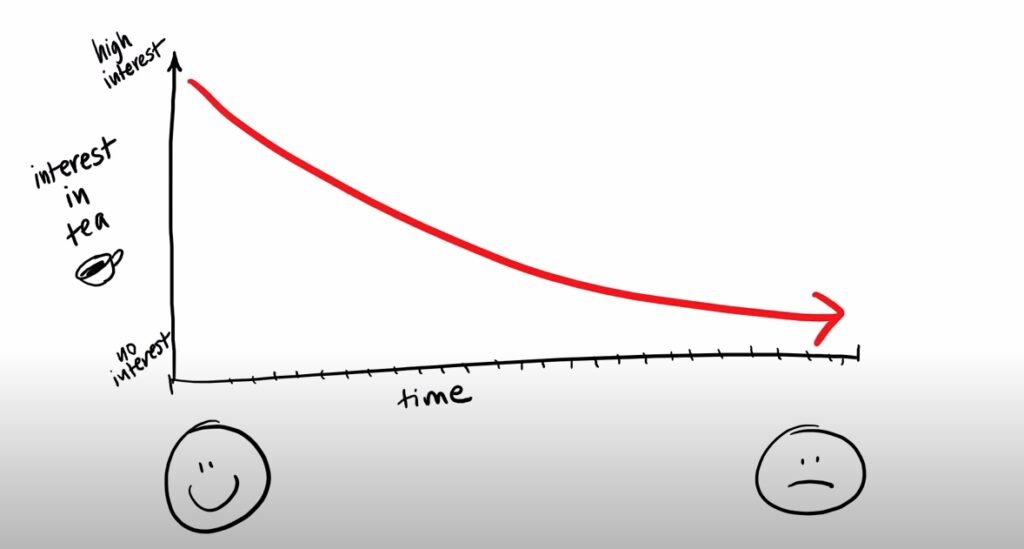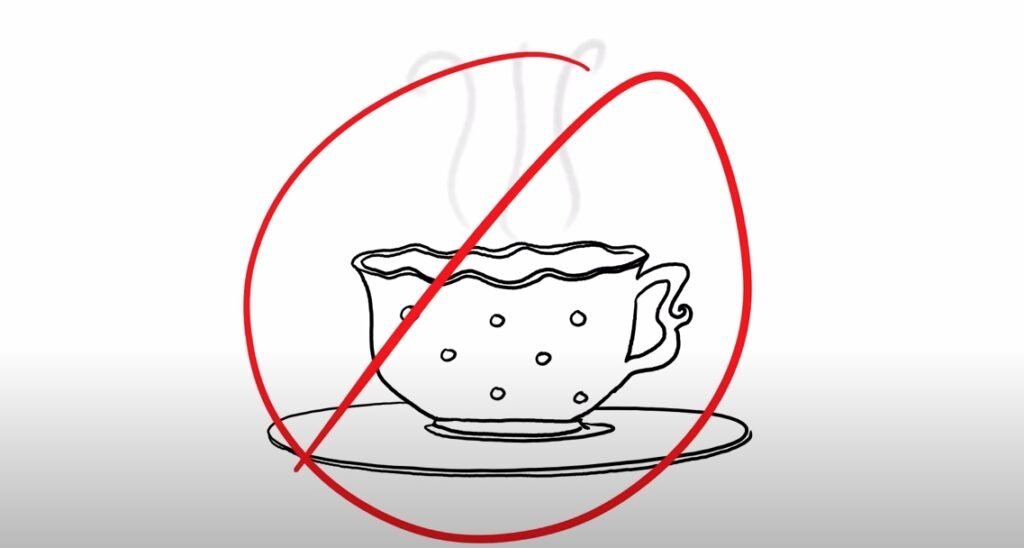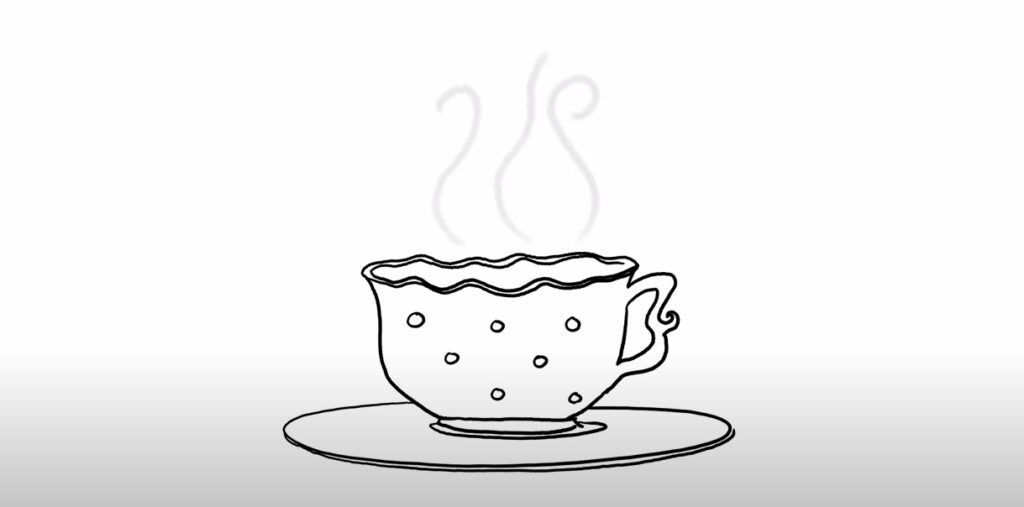Tea, a beloved beverage cherished for its warmth and invigorating properties, has entrenched itself as a staple in cultures worldwide. However, beyond its soothing facade lies a darker reality – the perils of excessive consumption. In this comprehensive exploration, we uncover the alarming truths about tea addiction, its chemical composition, and the detrimental impact it can have on health.
Understanding Tea Addiction
Tea’s allure stems from its primary alkaloid, caffeine, which mirrors the addictive qualities of potent substances like cocaine. The transient boost in energy and alertness belies the underlying risks of dependency. Withdrawal symptoms such as irritability, lethargy, and insomnia underscore the grip tea can exert on unsuspecting consumers.
Commercial Cultivation and Misleading Perceptions
The omnipresence of tea consumption serves as a testament to the insidious influence of commercial interests. With nearly a billion cups consumed daily worldwide, slogans promoting tea as a source of vitality perpetuate misconceptions. India’s historical shift towards tea during World War II underscores how economic pressures can sway dietary habits, often to the detriment of public health.
Decoding Chemical Composition
A deeper understanding of tea’s chemical makeup reveals its complex cocktail of compounds. From caffeine and tannins to aromatic oils and minerals, each component contributes to its nuanced effects. Notably, Indian tea boasts a richer concentration of these elements compared to its Chinese counterparts, amplifying both its allure and potential risks.

Unveiling the Health Hazards
Dr. P.C. Roy’s damning comparison of tea consumption to poison underscores the gravity of its health implications. While caffeine’s stimulatory effects offer temporary reprieve from fatigue, they come at a cost. Indigestion, kidney disorders, and exacerbation of premenstrual symptoms are just a few of the ailments linked to excessive tea intake.
Mitigating Risks and Promoting Healthier Habits
Despite its pitfalls, moderation and mindfulness can mitigate the harmful effects of tea consumption. Opting for shorter infusion times, supplemented with additions like mint and lemongrass, can alleviate digestive discomfort and enhance nutritional value. By cultivating a balanced approach to tea consumption, individuals can savor its pleasures without succumbing to its pitfalls.
Harmful Effects
- The use of tea is detrimental to health. Dr. P.C. Roy, the father of modern chemistry in India, equated tea drinking with the drinking of poison. The stimulating and restorative effects of tea are due to the action of caffeine on the nervous system.This results in heightening of
- intellectual faculties, relieving a feeling of fatigue and increasing the capacity for physical and mental work.
- The harmful effects of tea in case of certain specific diseases are discussed herein in brief.
- Indigestion
- Tea is said to slow down digestion. Its daily intake causes indigestion as it impedes the action of ‘ptyalin’, a digestive ferment of saliva which acts on cooked starch. The inhibition of saliva seems to be due to tannin. This effect disappears if milk is added to it, as the protein of milk precipates the tannin.
- Tea is also said to delay stomach digestion. It can lead to gas formation, diarrhoea and constipation.
- Kidney Disorders
- A definite effect of caffeine in dieursis. Experiments showthat caffeine in five cups of tea increases the urine by 400 co 500 per cent This continued stimulation ofteneys by caffeine may damage them. Tea may also promote kidney stones because of high content of oxalate.
- Premenstrual Syndrome
- Drinking tea can aggravate the symptoms of PMS. This was discovered by Dr. Annette Rossignol, an associate professor of public health at Oregon State University, He noted that women in China who drank one-half to four cups of tea a day were ivice as likely to have PMS as non-tea drinkers. Drinking eight cups a day increased their PMS incidence about tenfold.
- Drinking excess tea lead to incontinence or frequent and urgent impulse to urinate.some incontinent individuals.
- The respiratory and cardiac centres are also stimulated by caffeine as coronary arteries get dilated, resulting in an increase in the rate of blood flow. It is also said to increase the blood sugar level. The quickening of respiration lowers the level of carbonoxide and increases the heat production of the body by 10 to 20 per cent.
- It is thus clear that tea, if taken in excess, causes indigestion, over excitability of the nervous system, irritability, palpitation and sometimes prostration. To minimize the harmful effects of tea, it should be infused by pouring boiling water over the leaves and the tea be allowed to draw for about four to five minutes, then the liquid should be poured into another pot.
- Mint and lemon grass should be added. This will help in relieving stomach disorders like flatulence and supply vitamins.

Conclusion
While tea’s allure is undeniable, its unchecked consumption poses significant health risks. By arming ourselves with knowledge and adopting mindful habits, we can navigate the seductive embrace of tea without succumbing to its adverse effects. Let us raise our cups not in ignorance but in awareness, savoring each sip with moderation and reverence for our well-being.

FAQs
1. Is tea addiction a real concern? Yes, the addictive nature of caffeine in tea can lead to dependency and withdrawal symptoms.
2. Can adding milk mitigate the adverse effects of tea? Milk can help precipitate tannins in tea, reducing their impact on digestion.
3. How does tea affect kidney health? Excessive tea consumption can increase urine production, potentially leading to kidney damage or stone formation.
4. Are there gender-specific effects of tea consumption? Yes, studies suggest tea may exacerbate premenstrual symptoms and urinary incontinence in women.
5. What are some healthier alternatives to traditional tea? Herbal teas and infusions offer similar warmth and flavor without the high caffeine content, providing a gentler alternative for daily consumption.
